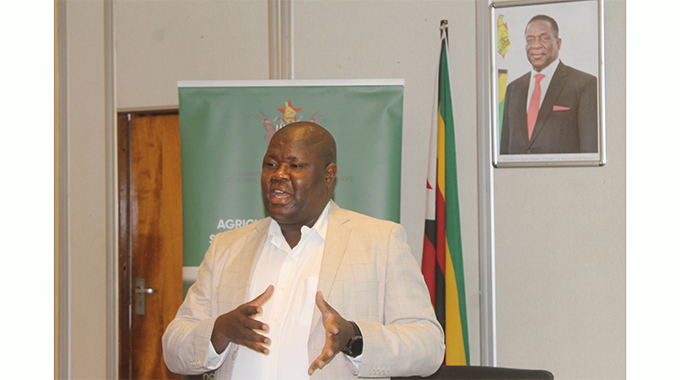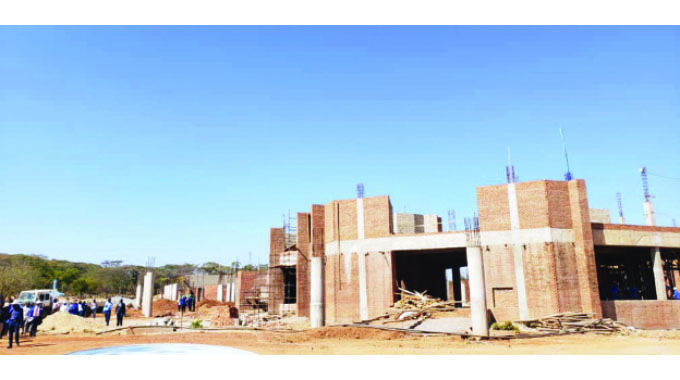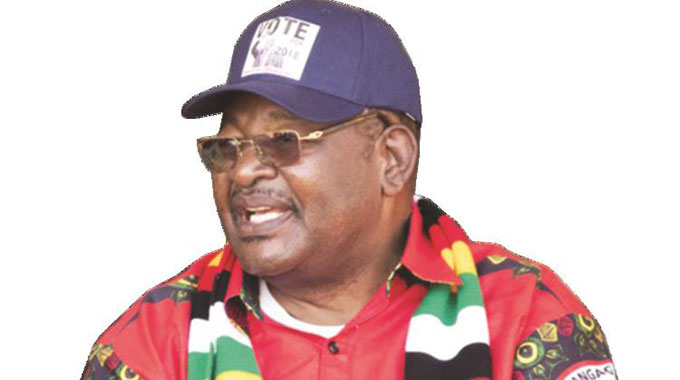EDITORIAL COMMENT: Drug action plan needs commitment from everyone

With almost six months of experience, data and results in upgrading the campaign against drugs, the national plan of action against the menace is now ready to be launched by the President.
In outline it is an ambitious plan, and one that deals with the serious problems on a very broad front. No one is assuming that there is some sort of magic bullet or that a simple and cheap solution exists.
A lot of resources have to be mobilised by the State, the private sector, churches, voluntary organisations, people of good will, communities and families.
The plan of action can help co-ordinate the vast efforts that will be needed, but many of those efforts have to come from the people and the communities.
The inter-ministerial national committee on drug and substance abuse, chaired by Minister of Defence and War Veterans Affairs Oppah Muchinguri-Kashiri took nothing for granted and delved into what was actually happening, what needed to be done, what has worked before or in pilot schemes and what did not.
Zimbabwe will get a National Co-ordinator, and the title makes it fairly clear that what will have to be a rather remarkable person able to work with a wide string of agencies, forces and communities will not be the sort of “drug czar” that has proved to be such a singular failure in a number of other countries.
The job description for this person must have been one of the more important functions of the national committee, to make sure that the post is effective, but that they are leading by persuasion and example, rather than by bellowing orders.
The outline of the actual policy is the obvious one: cut the supply of drugs, cut the demand for drugs, get those using the business to make huge profits into jail, get the addicts rehabilitated, get people anxious to break any habits, even if they have not yet reached the addiction stage, some effective help, and generally remove the whole aura of glamour and fashionableness that can surround one of the more sordid businesses in the world.
On the front of dealing with supplies and interdicting those supplies the national plan decentralises the police response, and makes sure that suitable laboratory and forensic services are readily available right down the line.
This means as dealers and suppliers and even users are arrested, tests can be done promptly allowing swift follow ups and swift prosecutions.
Already more than $438 million of drugs and illegal substances have been intercepted in Operation Clean Up and both intensifying the interception and upgrading the effectiveness of police operations will remove a lot more drugs off the street.
The operations also need to be extended to catching the major suppliers, the ones who deal in the large quantities, rather than just the street runners.
Street runners can be replaced as they are arrested, although if enough are arrested this becomes ever more difficult, but getting the big-time suppliers arrested can pay substantial dividends.
Generally the plan sees the police response upgraded and in place by the end of this month. It should be noted that the police can do a lot themselves, but they can proceed further with co-operation from the public.
Tip-offs help, and the police should think about have special drug numbers where information can be processed quickly, while a drug dealer is still wandering around.
The second major plank is reducing demand, and here a lot of people have to be involved. Over the next quarter a whole network needs to be put in place, ranging from provincial level right down to families.
This will include churches, communities, probably schools, private organisations and in fact the whole richness of a caring society.
A lot of people are going to have to know what to do if they come across a drug user, how they can help that person and where they can find help. And that help needs to be highly practical and effective.
While professionals can give advice, a lot of the work that needs to be done will be coming from ordinary people and family members, and the maximum support they can be given the more effective they will be.
Psychiatric hospitals are available for the most severe cases, but there are not that many beds.
For more than 60 years most psychiatric care has been done on an out-patient basis, thanks to the modern medication now available, but when treating alcoholics and severe drug addiction in-patient treatment at least in the initial stage is sometimes required or at least seen as highly useful.
For a start patients need to take their medication, and while a lot of work can be done by families in ensuring this happens, those families need backing.
Facilities like day case centres, training sessions for family members, and even just knowing that someone out there cares about your addicted child and is willing to be with you as you try and sort it out can renew hope.
The committee quite rightly noted that the social responsibility programmes of many private sector organisations can include some of the needed facilities and services.
These have done so much in other areas, such as the battle, now largely successful, against HIV and helping us as a national cope with Covid-19.
In fact these past successes give us hope for the success of the battle against drugs.
It will not be a short battle, or a quick battle, but so what. Zimbabweans have shown that when they combine, each chipping in their bit, they can do remarkable things and between us make huge differences.
The battle against drugs, addiction and the like is another of those immensely worthwhile efforts to save a generation, and we should all be prepared to help it succeed.











Comments